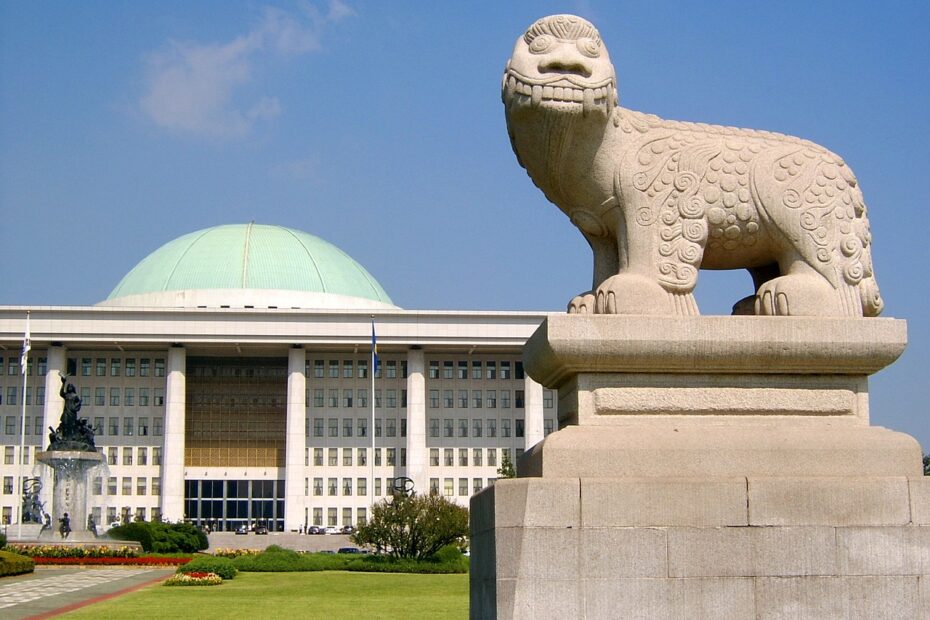By Ellie Sprinthall, BA International Relations and Korean
On February 20th, South Korean President Yoon Suk Yeol accepted the resignation of the Ministry of Gender Equality’s Minister Kim Hyun-sook and announced that he would leave the position unfulfilled.
This move is viewed by many as a step to disbanding the Ministry of Gender Equality, one of Yoon’s pledges from his 2022 presidential campaign, to garner votes for Yoon’s conservative People Power Party in the upcoming general election, particularly from young male voters who oppose the increasing influence of feminism.
Yoon’s administration has said that instead of naming a replacement, the Vice Minister will become Acting Minister. At a cabinet meeting in February, Yoon designated the Presidential Committee on Aging Society and Population Policy as the control tower of the country’s low birth rate issue, an issue that was previously under the Ministry of Gender Equality.
Yoon’s acceptance of ex-Minister Kim Hyun-sook comes six months after she first offered her resignation amidst controversy over the management of the World Scout Jamboree in August 2023.
Two amendments to government organisation law that would legally disband the Ministry have been proposed in the National Assembly, but neither has been implemented due to opposition led by the Democratic Party.
The Chairman of the People Power Party’s Emergency Committee has stated that if his party wins a majority in the April 10th elections, they will formally disband the Ministry of Gender Equality and form a Population Ministry that will take over its functions.
‘The Ministry of Gender Equality was created in 2001 to coordinate gender equality policies and support women’s rights organisations. Yoon’s pledge to disband the ministry was popular amongst male voters in their 20s and 30s, who largely swung to support Yoon in the 2022 presidential election.’
The Ministry of Gender Equality was created in 2001 to coordinate gender equality policies and support women’s rights organisations. Yoon’s pledge to disband the Ministry was popular amongst male voters in their 20s and 30s, who largely swung to support Yoon in the 2022 presidential election.
According to the Australian Institute of International Affairs, while half of voters in their 20s and 30s are not affiliated with any party, young men largely supported the conservative People Power Party in the 2022 election, while young women largely supported the liberal Democratic Party, speaking to a growing divide between the country’s young men and women.
As reported by Amnesty International, women in South Korea on average earn almost one-third less than men and increasingly face gender-based violence both online and offline. Women also make up less than one-fifth of the National Assembly.
Feminism and gender are contentious issues in the country, with many young men believing that policies to combat gender inequality give women an unfair advantage. They also believe men are disadvantaged, often citing the mandatory two-year conscription for men.
The April 10th general elections are predicted to be very close. As of January 2024, the People Power Party and the Democratic Party have equal support at 33% of voters. Gender may prove to be a decisive issue in the election.
Photo caption: South Korea’s National Assembly (photo credit: pixabay.com)
